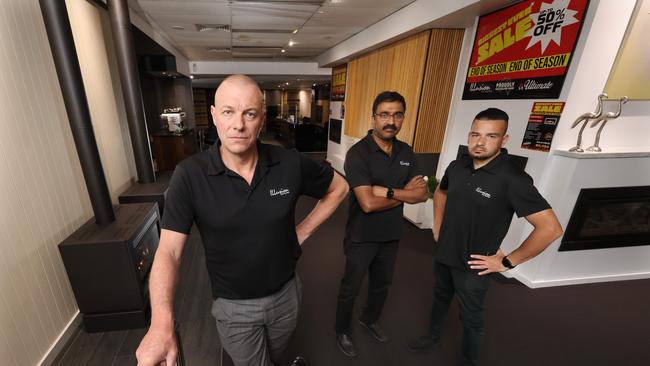Victoria’s ban on new gas connections ‘will cost 1300 jobs’: industry
The Allan government argues its gas policy will cut emissions. Industry says Victoria will be ‘cooking with coal’ as jobs leave our shores.

The Victorian government’s ban on new gas connections – as well as its plans to outlaw rebates on gas appliances – will destroy more than 1300 jobs within six to 12 months, according to the gas appliance industry.
From January 1, gas connections to new Victorian homes will become illegal as the Allan government attempts to force residents to transition to electrical appliances, in a move it claims will reduce greenhouse gas emissions.
The state government has also given gas industry stakeholders just a fortnight to consult on its plans to ban rebates on gas appliances, with submissions closing this Thursday, ahead of a proposed implementation date of November 30.
Gas Appliance Manufacturers Association of Australia president Ross Jamieson said the rebate ban represented “another nail in the coffin” for his industry, which has been shedding jobs since the government announced the ban on gas connections for new homes on July 28.
“We’ve surveyed our members, and with the job losses that have already occurred, we’re likely to lose 34 per cent of workers over the next 12 months,” Mr Jamieson said. “Livelihoods, businesses that people have built up over many generations, are being destroyed in months.”

The gas appliance industry currently supports more than 4000 direct jobs in positions ranging from engineering and manufacturing, to warehouse and retail roles. “For every direct job, there are about four or five indirect jobs that are affected,” Mr Jamieson said.
Unlike the electric appliances with which the government wants to replace them, more than 50 per cent of approximately 750,000 gas appliances sold in Australia each year are manufactured domestically.
“The Victorian government is chasing an ideological outcome to achieve the electrification agenda at all costs. It removes the rights of Victorian families to choose the appliance that provides the required heat for their needs in their situation,” Mr Jamieson said.
“Quite simply, moving to an electrical cooking appliance means we’re now cooking with coal, and probably (will be) for the next decade.
The majority of Victoria’s electricity is currently generated by burning brown coal, despite the state’s target of 95 per cent renewable energy by 2035.
Just 2.3 per cent of Australia’s carbon emissions are generated by domestic gas use.
Nicholas Smith, the general manager of Australia’s largest manufacturer of gas heating appliances, Illusion Australia Gas Log Fires, said it had taken three generations to build the business, “and it could take six months to destroy it”.

The business manufactures its entire range at two facilities in Dandenong, in Melbourne’s outer southeast, employing 140 people across manufacturing, research and development, warehouse and administrative roles, as well as sales roles at its nine showrooms in Victoria, NSW, South Australia and Western Australia.
“The other flow-on effect to this is we have about 15 other independent local suppliers where we would be their largest customer, ranging from flue suppliers to fan suppliers, to component suppliers. That’s another 15 businesses and all their workers that will be under immense stress by us closing down.”
The Australian understands Victorian Energy Minister Lily D’Ambrosio’s proposal to outlaw rebates on gas appliances is yet to go to cabinet, amid concerns over the move from several ministers.
A recent Redbridge poll of 2000 Victorians showed more than three quarters, or 77 per cent, did not support the ban on gas connections to new homes.
The poll also showed escalating anxiety over the cost of living, with 59 per cent saying the issue should be the state government’s top priority, up from 36.6 per cent in March.
An Allan government spokeswoman said gas companies were “doing whatever they can to lock Victorians into paying for expensive, polluting fossil gas for decades to come”.
“That’s why we’re consulting with industry on ways to ensure Victorians don’t get misled by special deals and offers or misinformation,” she said.







To join the conversation, please log in. Don't have an account? Register
Join the conversation, you are commenting as Logout